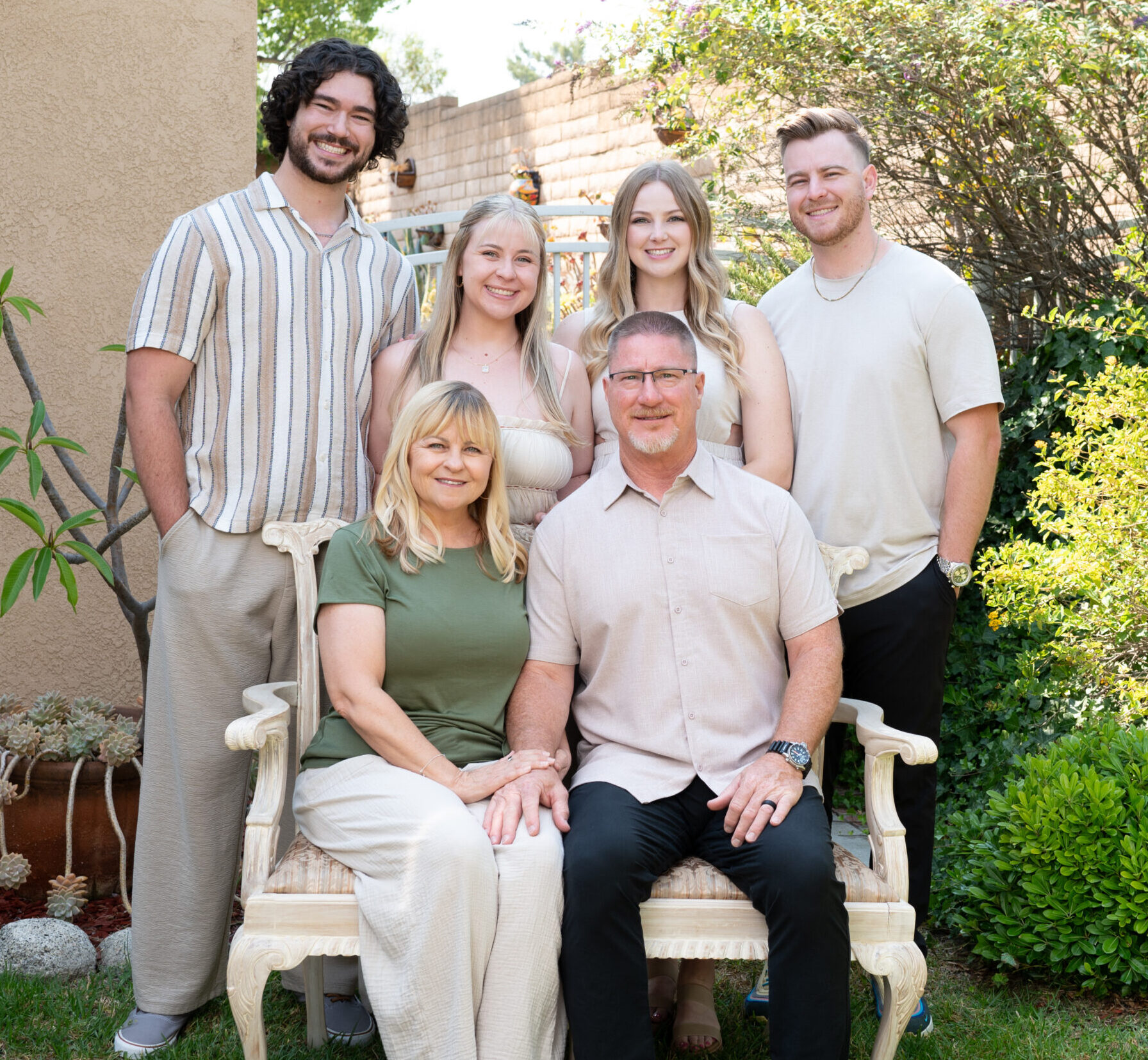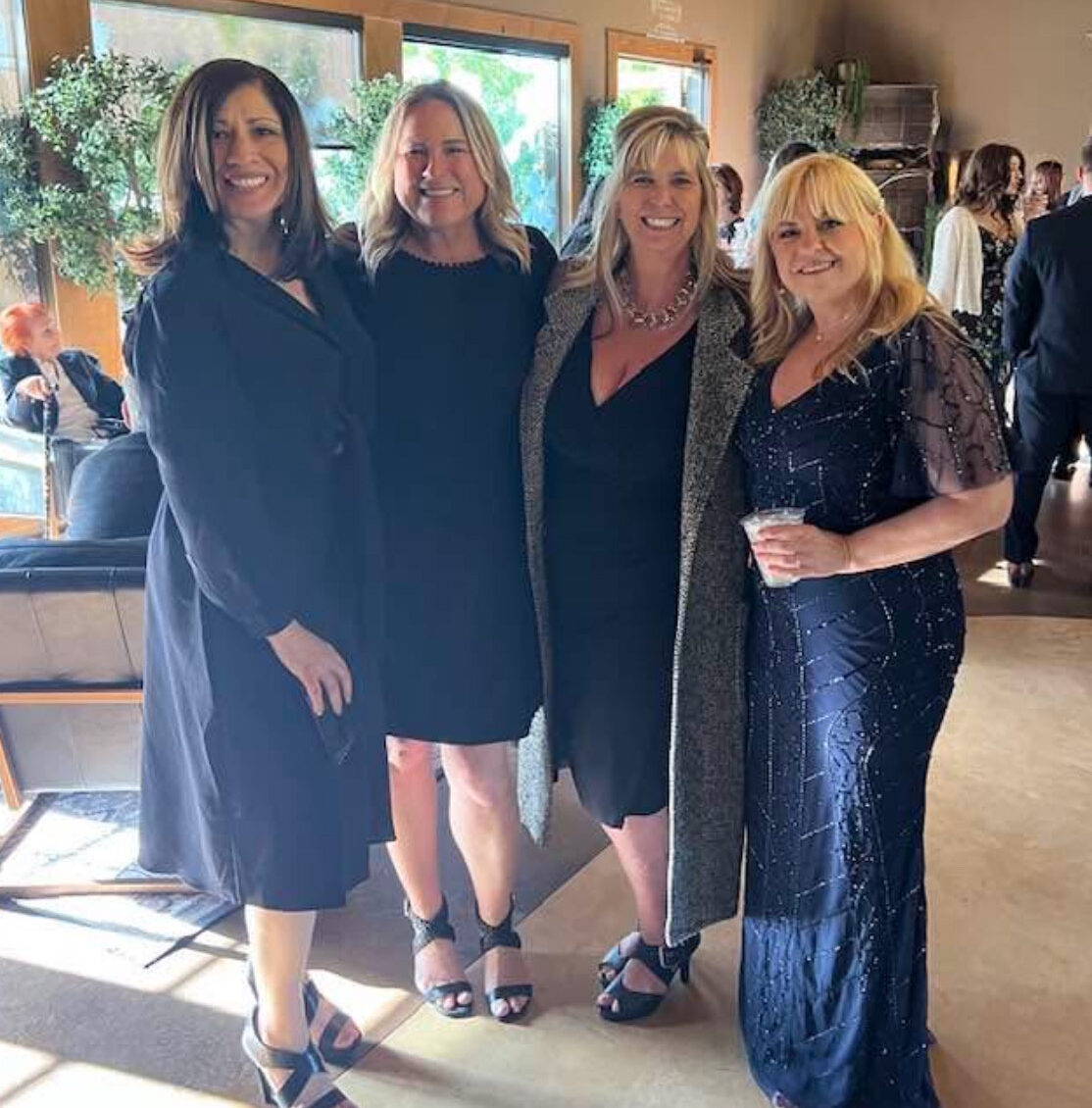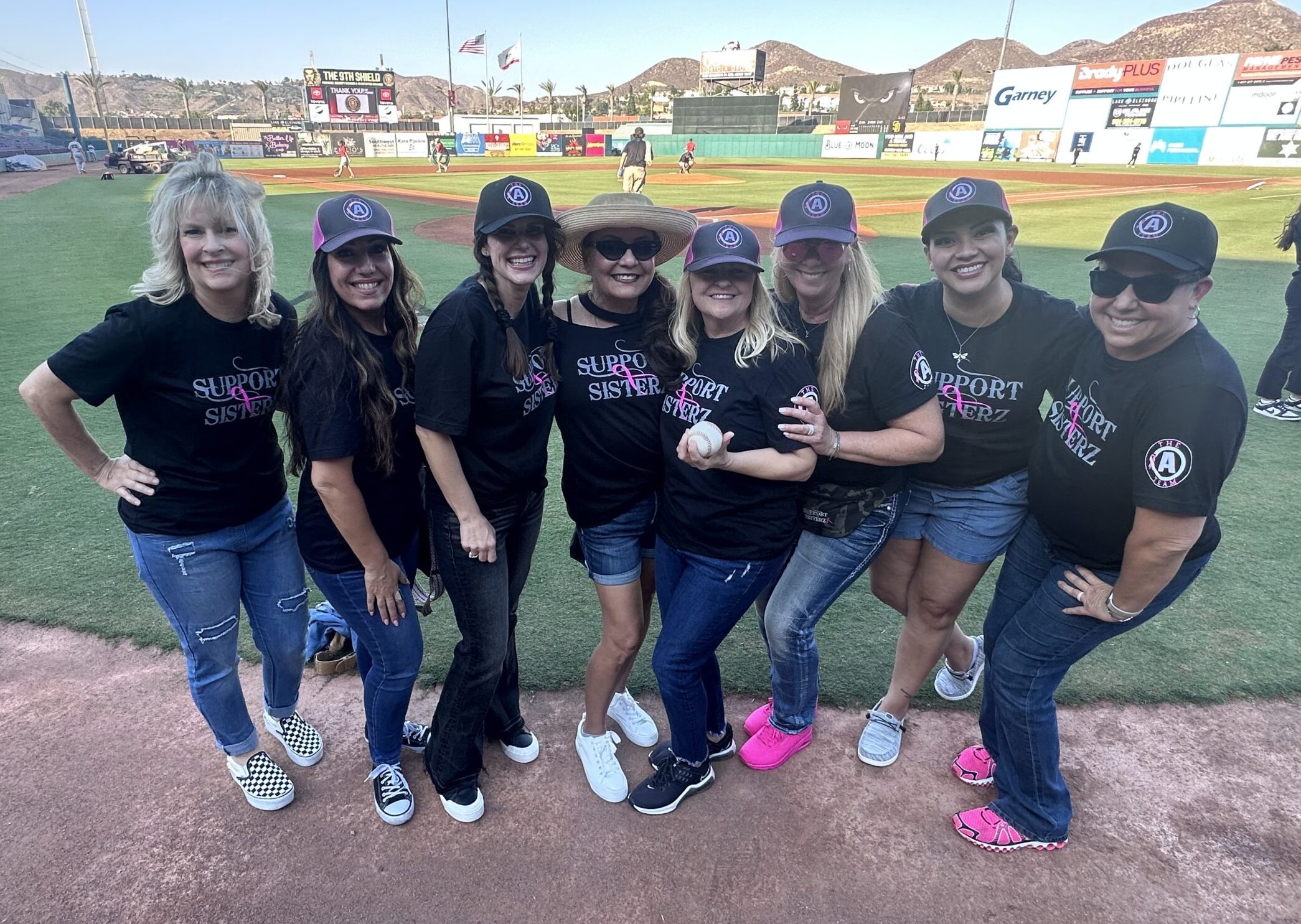 Adrianna lives in Norco, CA, where she enjoys spending time with family and friends, camping at the river and in the desert, and walking her dogs. She was first diagnosed with breast cancer in 2006 and is the cofounder and President of Support Sisterz, a volunteer-run organization that provides financial and emotional support to women in her community battling breast and gynecological cancers. Her own diagnosis inspired her to take on this role.
Adrianna lives in Norco, CA, where she enjoys spending time with family and friends, camping at the river and in the desert, and walking her dogs. She was first diagnosed with breast cancer in 2006 and is the cofounder and President of Support Sisterz, a volunteer-run organization that provides financial and emotional support to women in her community battling breast and gynecological cancers. Her own diagnosis inspired her to take on this role.
Her cancer journey also shaped her career path. Drawn to help others, she began working in hospitals and chemo infusion centers as an oncology massage therapist. In 2011, she completed her oncology massage training and has since provided comfort-based care at the bedside of adult and pediatric patients in hospitals and infusion centers. She views this work as a meaningful way to give back.
Adrianna recently took leave from her role following a new diagnosis of metastatic non-small cell lung cancer (mNSCLC). She is heartbroken to step away from her work with the cancer community, knowing how important it is.
When Adrianna first felt an ache in her shoulder, she brushed it off as a sore muscle. But when the pain lingered, her instincts told her it might be something more.
Adrianna’s history with breast cancer nearly 20 years earlier made her push harder for answers, even when her doctor suggested waiting. She feared the pain in her shoulder could be a new breast cancer occurrence metastasizing (spreading).
She was partially right. A whirlwind of scans, biopsies, and appointments revealed not breast cancer, but stage 4 (IV) non-small cell lung cancer with a HER2 mutation, a diagnosis she never expected.
A difficult start
Adrianna’s early experience with her oncologist was crushing. “She basically gave me no hope,” she recalled. Even when targeted treatment options were discussed, the most enthusiasm the doctor could muster was, “What do you have to lose?” Adrianna felt like her doctor gave up on her before they even started treatment.
She also felt like her doctor didn’t want her to ask questions and would get frustrated when she did. Her doctor never even told her that she had the exon 20 mutation. That changed when she sought a second opinion at City of Hope. The doctor there said, “This is great news. You have a targetable mutation. There are good treatments for this.”
This difference in approach helped Adrianna process her diagnosis and prepare for treatment with more optimism and fight. Still, she felt overwhelmed—like she was drowning in information, decisions, and fear. That’s when she turned to GO2 for Lung Cancer.
Finding GO2
Like many people who are newly diagnosed with lung cancer, Adrianna took to Google to learn more. She soon discovered Dr. Bryant Lin’s story, and his episode of GO2’s Lung Cancer Living Room®. From there, she learned about GO2’s HelpLine and decided to call.
“I didn’t know what I was looking for, I didn’t even have a specific question in mind, but I needed someone who would understand me and what I was going through,” Adrianna said.
She spoke with Maureen Rigney, LICSW, GO2’s Senior Director, Support Programs and Psychosocial Care, who helped talk her through the anxiety she was feeling around her diagnosis and the experiences she’d had with her oncologist. “Maureen put me at ease immediately,” she said.
Maureen also connected Adrianna to a program within the HelpLine called LungMATCH. Matthew Reiss, MSE, PhD, GO2’s Manager, Precision Medicine & Navigation—one of the people behind LungMATCH—spent nearly an hour on the phone with Adrianna and her husband that first day.
“He walked me through what my results meant and the questions I should take back to my doctor,” Adrianna said. “He’s absolutely the best. GO2’s team gave me hope and direction at a time when I felt completely overwhelmed.”
Support that made a difference
Adrianna didn’t stop with the HelpLine. She quickly plugged into several other GO2 programs as well. She joined a session of Gathering Hope, GO2’s virtual community social group, and shortly after that joined Mind Over Matter, a program that gives people impacted by lung cancer simple tools to manage stress and anxiety through mindfulness and coping strategies.

“Mind Over Matter helped me find solid ground when the fear and anxiety made me feel like I was drowning,” she said. In fact, she’s continued to use the techniques she learned during Mind Over Matter since then. When anxiety crept in before a recent appointment, she leaned on techniques and tools she’d learned in Mind Over Matter to talk herself through the big feelings she was experiencing and approach her appointment with more calm. “Even just having the papers from Mind Over Matter in my bag calmed me down before appointments. I told myself, ‘Don’t make this bigger than it is. Just show up and see how it goes.’”
Adrianna was also matched through GO2’s peer-to-peer Phone Buddy program with a woman who is also living with HER2+ lung cancer. “She’d been on the same treatment that I’m on now for 4 ½ years, so she really understands exactly what I’m feeling and going through. Talking to her helped to pull me out of a dark place.”
“I just can’t say enough good things about GO2,” Adrianna said. “I didn’t use just one resource or program. I needed something from all of them in different ways, and they were all there for me.”
Why connection matters

Adrianna knows firsthand how different the landscape looks for other cancers, like breast cancer, where support groups and sisterhood are abundant. “Lung cancer can feel so isolating,” she said. “And then there’s the stigma. People want to ask, ‘Did you smoke?’ But what you really need is someone who says, ‘I’ve been there too.’”
Now on her fourth round of a targeted therapy for HER2 cancer. Her tumors are shrinking and even disappearing. She changed oncologists, built a new care team, and leans on her GO2 community when anxiety creeps back in.
That’s why she urges newly diagnosed patients to reach out and to connect with organizations like GO2 as soon as they feel able. “Your friends and family can love you, but they can’t always understand what this all feels like,” Adrianna said. “Talking to someone who’s an expert in lung cancer or who has walked in your shoes is different. It’s lifesaving and life-changing.”
GO2’s HelpLine is a free, one-on-one service that connects patients and caregivers with experienced staff who can provide guidance, resources, and, most importantly, hope. Whether it’s questions about biomarker testing, treatment options, or simply needing someone to listen, the HelpLine is often the first step toward feeling less alone after a lung cancer diagnosis. Call 1-800-298-2436 or email support@go2.org to get started.

Leave A Comment